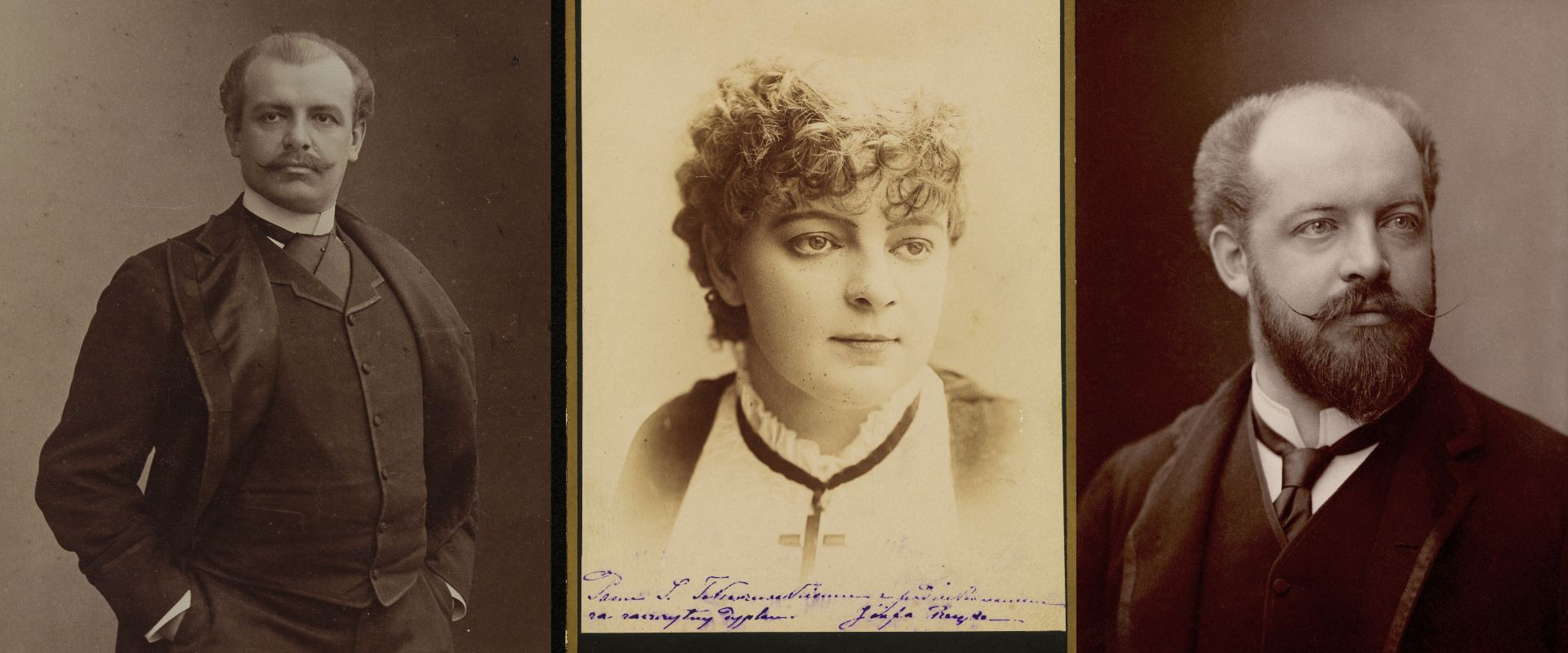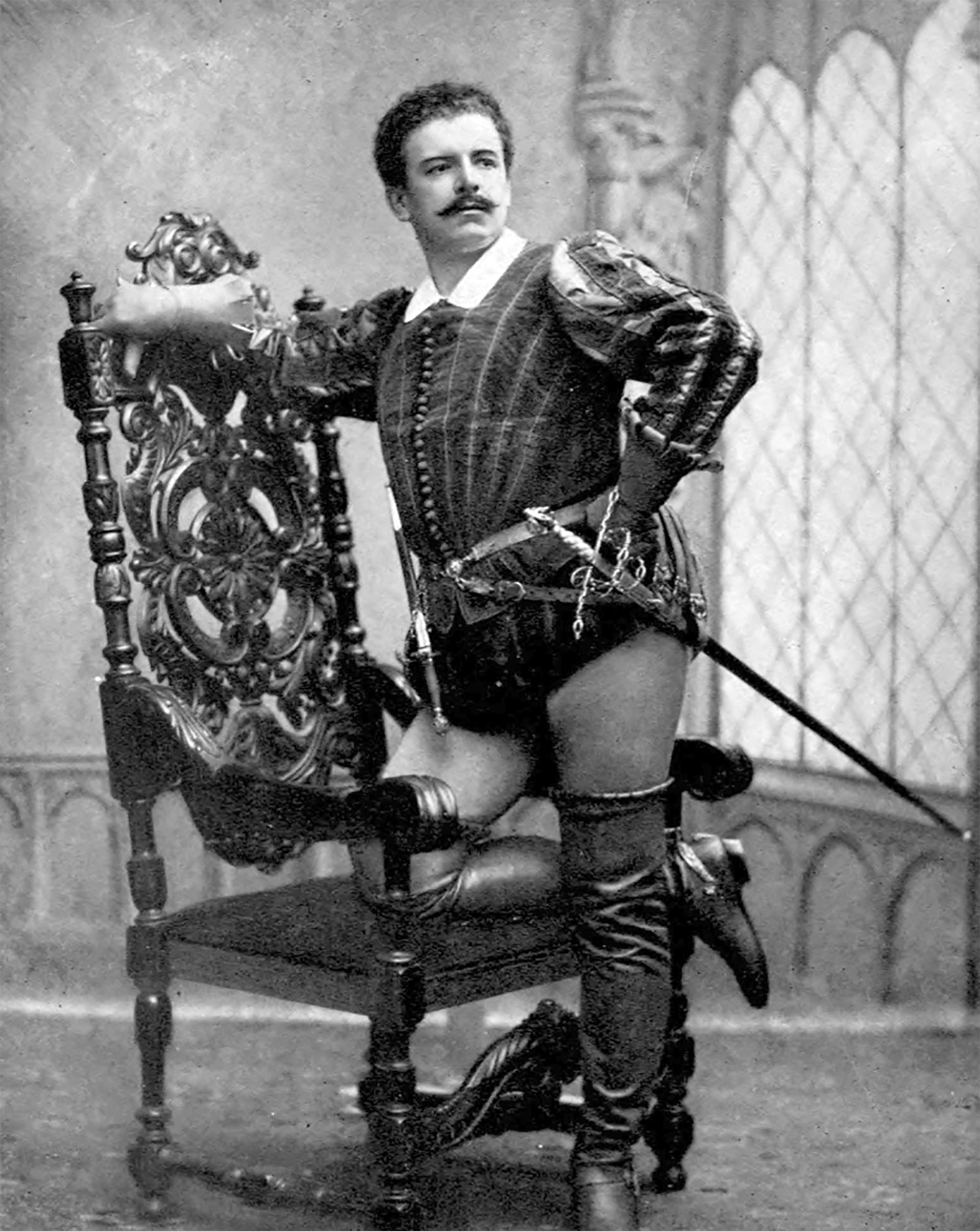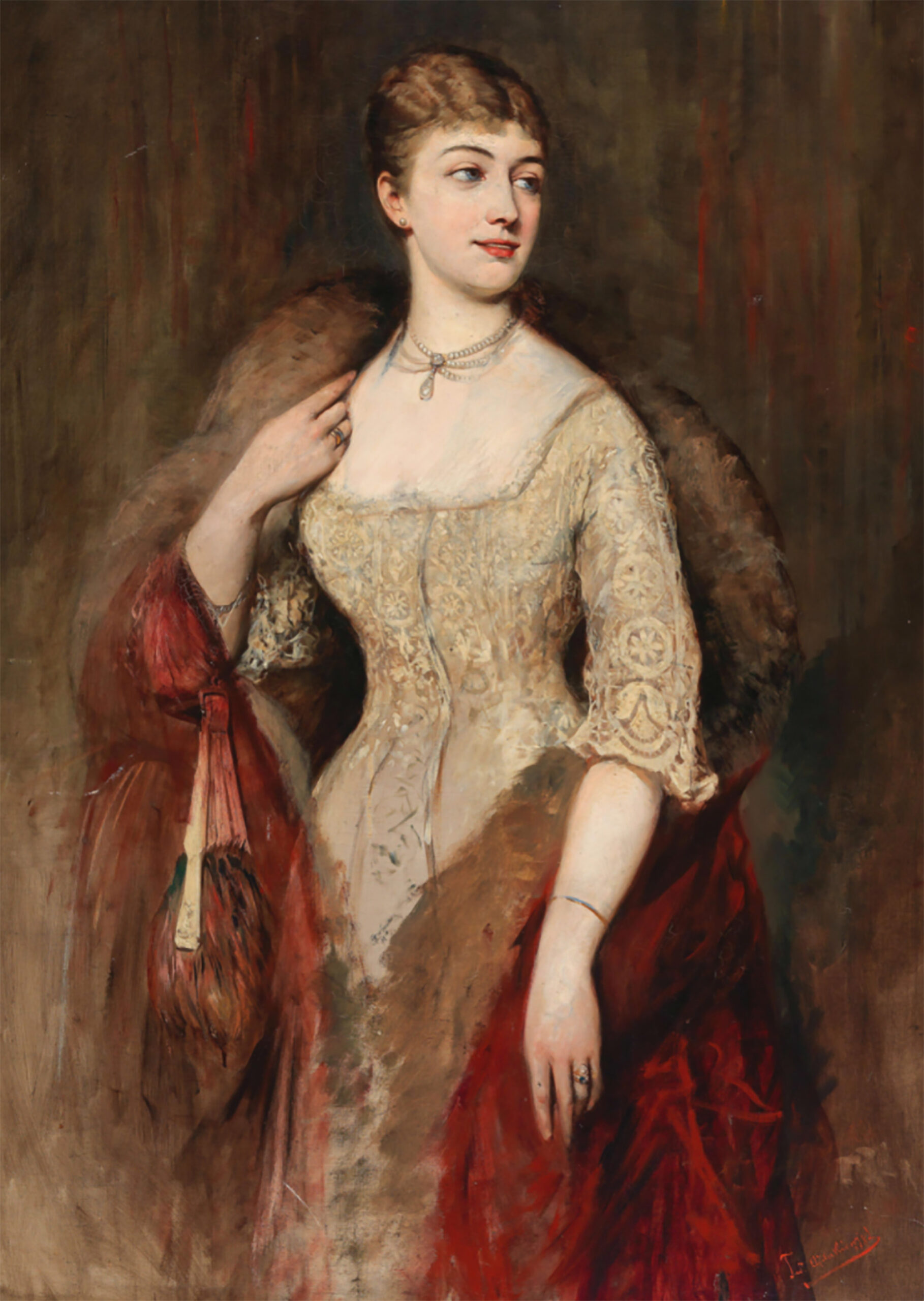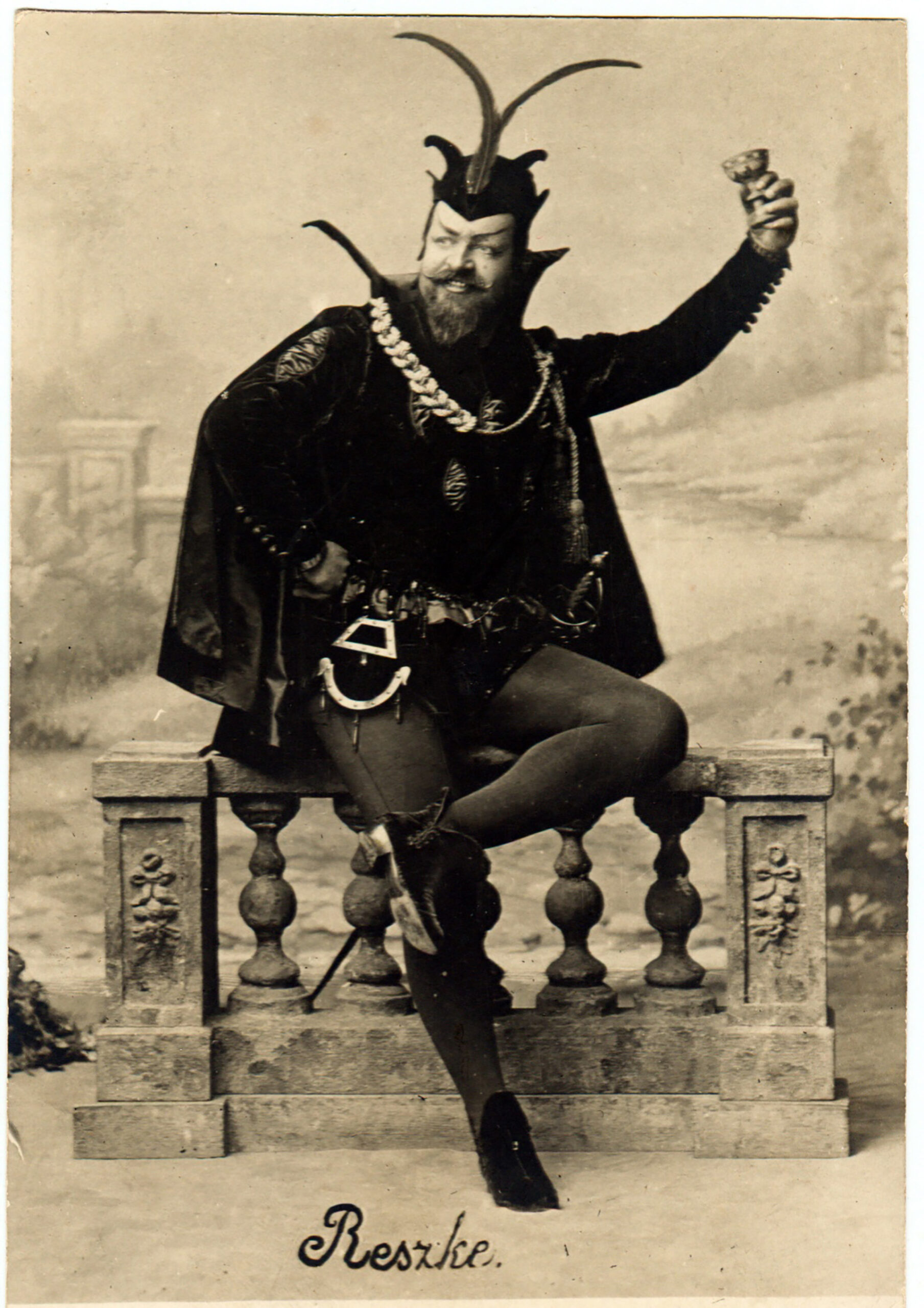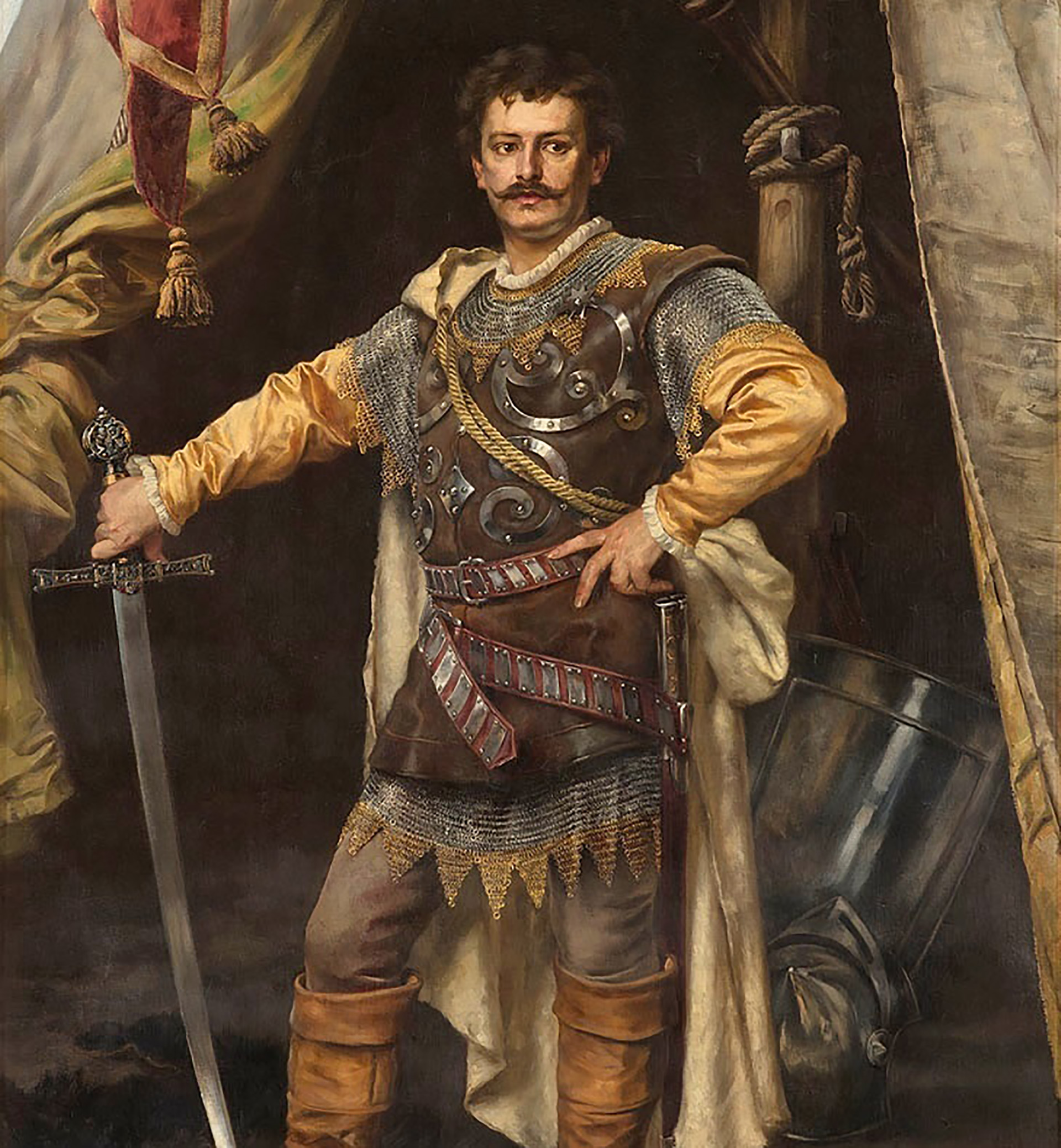 Jan, Józefina and Edward Reszke – from musical family to world stages
Jan, Józefina and Edward Reszke – from musical family to world stages
“Such will be the Commonwealths as the upbringing of their youth.” The truth in this timeless quote by Jan Zamoyski is reflected from generation to generation. What happens when a family home has always been filled with the sounds of music? The talent and passion of their parents opened the doors of the great world of opera for Jan and Edward Reszke and their sister Józefina.
Patriotism and Music. These were the values in which Jan and Emilia Reszke raised their five children. For the times, fortune was certainly on their side. Warsaw, under Russian partition, was developing dynamically in infrastructure, industry, and trade. Jan, as the heir of one of the wealthiest Poles, businessman, and philanthropist Jan Bogumił Reszke, did not have to worry about the family’s livelihood. On the contrary, his business acumen allowed him to increase the family wealth. The prosperous Reszke household was highly respected in the city and attracted artists.
Coming from an aristocratic lineage, Jan managed the prestigious Hotel de Saxe (named after the Saxon origin of the owner) at 33 Krakowskie Przedmieście and 3 and 5 Kozia Street. In his free time, he played the violin and composed songs for his wife. After participating in the January Uprising of 1863, he was exiled to Siberia, and his wife who took over the managing of the family business while raising the children. Emilia, née Ufniarska, was a singer. She studied with the famous Spanish singer and vocal pedagogue Manuel García and his daughter, Pauline Viardot, muse and friend of Fryderyk Chopin. Emilia’s mezzo-soprano paired excellently with Jan’s baritone, and they not only performed together but also held numerous charity events. Additionally, they hosted rehearsals for artists from the Grand Theatre in Warsaw. Friday evenings at the Reszke’s became a tradition when the couple, accompanied by their children, performed arias, duets, and even choral music. Their guests included Stanisław Moniuszko and Józef Wieniawski.
Little is known about the fate of Emilia, the oldest of the five siblings. Born in 1848, she is mainly known as a landowner, although she showed musical talent as well. Her husband, Adam Michalski, acquired the Borowno estate (currently in the Silesian Voivodeship, Częstochowa District), where they settled and focused on its development. Their estate became known for its hospitality and frequent visits from the contemporary intelligentsia. Two of Emilia’s brothers, Edward and the youngest, Wiktor, are buried at the local cemetery. Edward Reszke has also been the patron of the primary school in Borowno since 1996.
The youngest of the siblings, Wiktor, born in 1859, did not pursue a musical career either. Although he occasionally performed with his siblings as a child with the so-called Reszke Quartet and was said to have a pleasant voice, he was not drawn to singing. Unlike his sisters and brothers, he stayed in Warsaw, where he ran a business. After his father’s death, he took over the management of the Saxon Hotel. He passed away at the age of 57 on the Garnek estate, owned by his brother Edward.
Jan Reszke, born in 1850, displayed vocal talent from an early age. Initially, together with his siblings, he sang at the church in Wilanów, where the family spent summers. As a young boy, before his voice changed, he performed soprano parts at the Warsaw Cathedral. He initially considered a future in law, but like his younger brother Edward (born in 1853, who briefly studied agriculture), he realized that his career path had already been set by his own voice. Both brothers thus turned to music.
Their youngest sister, Józefina, born in 1855, also showed a passion for singing. She inherited her voice from her talented mother, who initially taught her personally. Later, she sent her to study in St. Petersburg, where she came under the wing of the renowned Swedish singer Hariette Nissen-Salomon. Józefina made her debut in 1872 in Venice as Marguerite in Gounod’s “Faust,” at just 17. She performed leading soprano roles in Venice for the next three years. She then moved to Paris, where she sang the role of Ophelia in “Hamlet” by Thomas. Later, she debuted at Milan’s La Scala in the role of the title character in “King of Lahore,” alongside her brother Edward. She was praised not only for her charm and beauty but also for her excellent soprano, which over time gained a dramatic colour. She had all the qualities to be considered an opera heroine.
After interrupting his law studies, Jan travelled to Milan to refine his vocal technique. His master was the world-renowned Italian singer Antonio Cotogni, who classified Jan’s voice as a baritone. Only two years after his sister, Jan debuted in Venice as Alfonso in “La Favorita” by Gaetano Donizetti. His Polish surname was considered difficult to pronounce, so he sang under the pseudonym Giovanni di Reschi. Over the next two years, he travelled to England, Ireland, and France, performing for several seasons. However, true worldwide fame came to him only with tenor roles. Although his debut as a tenor in 1879, at Madrid’s Teatro Real in the title role of “Robert le Diable” by Giacomo Meyerbeer, was later considered unsuccessful by critics, Jan changed teachers and worked intensively on his voice. Success came relatively late, when he was 34 years old. Jules Massenet invited him, along with his brother Edward and sister Józefina, to perform “Hérodiade” at the Paris Opera. Jan performed the role of John the Baptist, while Józefina sang Salome, and Edward the prophet Fanuel.
Jan’s career took off. He became the first tenor at the Paris Opera. His vocal talent and stage charisma were highly praised, and his performances attracted large audiences. In 1887, he debuted at London’s Covent Garden, where he performed in numerous productions for over a decade, often with his brother Edward. Some of his famous roles included: Radamès in ”Aida” by Verdi, Walter in ”Die Meistersinger von Nürnberg” by Wagner, Don José in ”Carmen” by Bizet, Raoul in ”Les Huguenots” by Meyerbeer, and the title roles in ”Faust” by Gounod, ”Lohengrin” by Wagner, ”Werther” by Massenet, ”Tristan und Isolde” by Wagner, and ”Romeo and Juliet” by Gounod. Specially for him, the composer added the aria “O jour de deuil” for Romeo in the third act of ”Romeo and Juliet.” The 1888 production of ”Romeo and Juliet,” featuring Adelina Patti and his brother Edward, became one of the most iconic events in the history of opera.
Józefina’s debut at Covent Garden came earlier, in 1881, in the title role in Verdi’s ”Aida.” She was joined by Edward in London, but the British public didn’t recognize her talent. Between 1879 and 1883, Józefina Reszke performed in Madrid, where she achieved her greatest triumphs. Teatro Real offered her three times the salary of the Paris Opera, where she was already a star. She created captivating roles in works like ”L’Africaine” and ”Robert le Diable” by Meyerbeer, ”La Juive by Halévy,” and ”Don Giovanni” by Mozart as Donna Elvira. She also had successes in Lisbon, including as Valentine in ”Les Huguenots.” She regularly returned to Poland, where she performed roles like ”Halka” and Aida in Warsaw. ”Halka” was considered her signature role, and she was awarded a diploma of honor by the Warsaw Musical Society.
Józefina’s brilliant career was interrupted by her marriage to Baron Leopold Julian Kronenberg in 1884. After their marriage, she did not perform again, though she occasionally gave charity concerts. She stopped performing at her husband’s request, which was common in aristocratic marriages of that time. However, their marriage was considered happy. They had two children, Józefina and Leopold. Reszkówna passed away just days after giving birth to their younger son, at the age of just 36. She was buried in Powązki Cemetery. Her husband, who outlived her by 46 years, was one of the founders of the National Philharmonic in Warsaw.
Edward, initially less determined to become a singer than Jan or Józefina, continued taking singing lessons in Warsaw and, at his brother’s suggestion, in Italy. However, his career was largely shaped by chance. He auditioned for the Paris Opera after persistent requests from Józefina. His beautiful, noble bass voice, along with his imposing figure and magnetic presence, impressed the theatre director, who recommended him to Verdi. This led to his debut in ”Aida” under the composer’s baton in April 1876. His small role as Pharaoh was enough to open further opportunities. After Paris, he performed in Turin, Milan, Lisbon, and eventually London.
Edward’s career at Covent Garden began with his debut in ”Le Roi de Lahore” by Massenet in 1880. He performed in London over 300 times. Some of his key roles included: Don Basilio in ”The Barber of Seville” by Rossini, Walter in ”William Tell” by Rossini, Father Laurence in ”Romeo and Juliet,” Giorgio in ”I Puritani by Bellini,” Count Almaviva in ”The Marriage of Figaro” by Mozart, Leporello in ”Don Giovanni” by Mozart, Sarastro in ”The Magic Flute” by Mozart, Ramfis in ”Aida” by Verdi, and his signature portrayal of Mephistopheles in ”Faust” by Gounod. Like his brother, he was also famous for performing Wagnerian roles.
Jan performed for the Shah of Persia, the German Emperor and Empress, and, along with Edward, for Queen Victoria of Britain. In 1891, Jan was granted a noble title by Tsar Alexander III of Russia. That same year, both brothers became soloists at the Metropolitan Opera in New York. Between 1891 and 1900, Jan performed 339 times, while Edward continued singing until 1903, performing in around 700 productions. The brothers often sang in season-opening performances. According to a review in the New York Evening Post, Edward was regarded as the most perfect, incomparable performer of Mephistopheles in Faust.
In 1902, Jan decided to end his singing career and he began teaching. He established a singing school and ran it for several years, initially in Paris and later in Nice. Many prominent singers of his era studied under him, including Magie Teyte, Felicja Kaszowska, Wiktor Grąbczewski, Bronisław Romaniszyn, and Janina Korolewicz-Waydowa. He purchased a property in Skrzydłów, which became his Polish home. He was passionate about horsemanship and horse breeding. He died in Nice in 1925 and was buried in Paris.
Edward’s final performance dates back to 1903. His only official recordings come from the time as well. He later went to London, where he opened a singing school in 1907. He spent more and more time in Poland, where he owned land in Garnek, near Częstochowa. He continued his pedagogical work in Warsaw. Historical sources often mention his rather wild lifestyle, which likely contributed to his premature death in 1917. He was buried in Borowno, on his sister Emilia’s estate.


